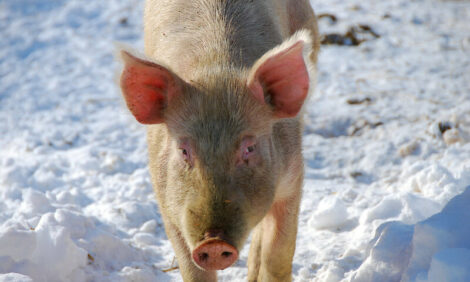



EU Authority Examines Estonia's African Swine Fever Controls
ESTONIA - The Food and Veterinary Office (FVO) of the EU carried out an audit in October 2013 on the controls in Estonia aimed at keeping out African Swine Fever. Control measures were found to be in place but the FVO raised some concerns about passenger luggage checks.This report describes the outcome of an audit carried out by the FVO in Estonia on 14 and 15 October 2013.
The overall objective of the audit was to evaluate the implementation and effectiveness of measures to prevent the introduction of African swine fever after the confirmation of outbreaks in Belarus and Russia. In terms of scope, the audit focused on the controls of cleaning and disinfection of returning livestock vehicles and on the consignments of products of animal origin imported in passengers' luggage.
Controls on vehicles for live animals are implemented. Vehicles re-entering the Union after bringing feed to animal holdings are not subject to controls, contrary to the requirements of the Decision, because they are not possible to identify. The last vehicle transporting live animals arrived at the border in May 2012.
Documentary checks were implemented and disinfection certificates were issued as required. However, some declarations received with insufficient data to guarantee that the livestock vehicles had been satisfactorily disinfected were accepted.
In addition to EU legal requirements, an additional safety measure has been put in place in Estonia, Latvia and Lithuania: livestock vehicles are banned from entering animal holdings within 48 hours after re-entering the Union.
Maximum allowances for import of products of animal origin in passengers' luggage are applied but, because the controls on personal imports are not fully documented, veterinary services cannot evaluate their compliance and effectiveness. Permission for passengers to return to their country with illegal products when detected is still in place. This issue has not been addressed after the previous FVO audit and reduces the effectiveness of the controls in deterring further attempts to illegally import products of animal origin.
The report makes a number of recommendations addressed to the Estonian competent authorities, aimed at rectifying the identified shortcomings and further enhancing the control measures in place.








